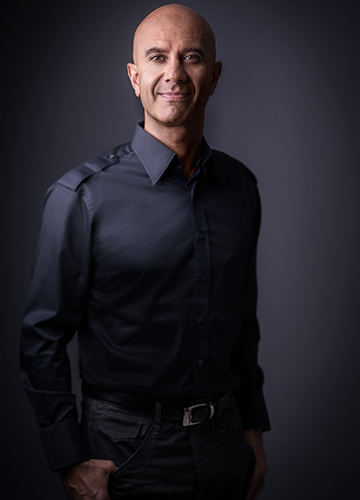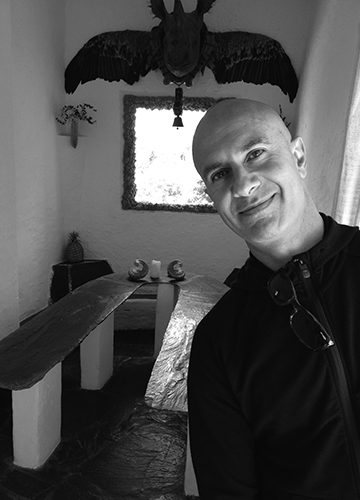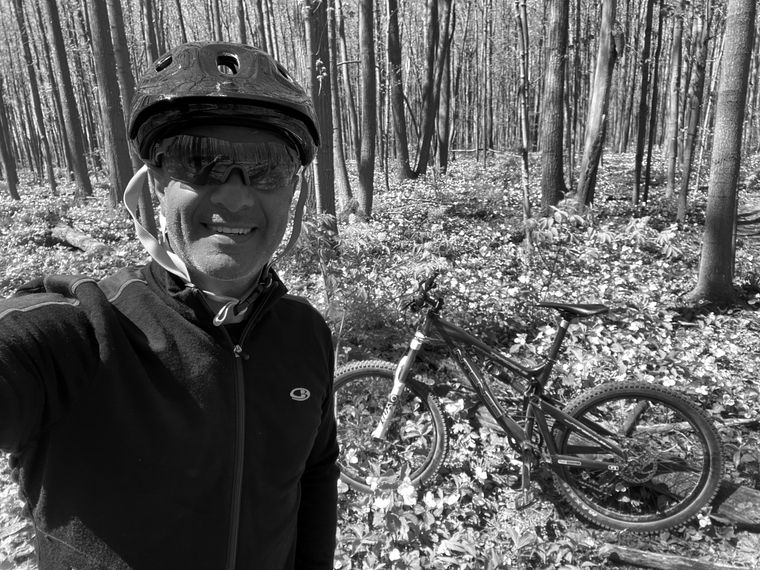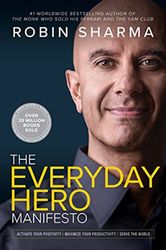It is difficult to pinpoint the exact reason why The Monk Who Sold His Ferrari, a fable about how to live your dreams, became such a big hit when it was released in 1996. Perhaps because it addressed the innate discontent in the human condition. Or perhaps because it promised to satiate what Sharma calls “the appetite to know the next mountaintop. To see how far we can go.” Whatever the reason, the world lapped it up. The book went on to sell more than four million copies, catapulting Sharma into the world of leadership and personal mastery. He would go on to write a dozen books and hold workshops for millions of people, including billionaires, titans of industry and clients like NASA, Microsoft and Yale.
Twenty-five years after The Monk…, Sharma is older and wiser. Gone is the idealism of his youth. One could perhaps say that he has come down from the rarefied stratosphere of eastern mysticism to the plains of the ‘everyday hero’. “I used to talk a lot about changing the world in my books, but now I am much more about the idea of an everyday hero,” he tells THE WEEK. “Some people can live big lives in small ways. Not everybody has to be a Gandhi or a Mother Teresa or a Nelson Mandela. If you are a gardener, a taxi driver or a baker, or if you are working in a shop on a busy street, that is as important as someone who evangelises the world. So, we can all be everyday heroes.”
Of course, his core philosophy remains the same, offering the pathway to “prosperity, vitality, happiness and inner peace”. He still says that the secret of happiness is about finding your passion and then directing all of your energy towards it. He still believes that tragedies provide the best opportunities for growth. He still emphasises how important it is to remain faithful to your ideals. However, he seems to have added nuance to his beliefs, as though life has aired them out, giving them space to breathe.
The result is an overarching pragmatism in his latest book, The Everyday Hero Manifesto. There are concrete steps on how to actuate the principles. For example, in a chapter called ‘The Peak Productivity Strategies Pyramid’, Sharma talks about ‘The 5 Great Hours Promise’, in which he recommends that his clients work five hours a day—“five hours of undisturbed, fierce, steady and exquisite work”.
“The most productive people on the planet do not hustle and grind 24/7/365,” he says. “Instead, when they work, they work with supreme intensity…. They are serious. They are professionals, not dabblers. Specialists instead of generalists. They go super-deep versus really wide when they work.” In the chapter called ‘The Algorithm for a Beautifully Balanced Life’, he lays out eight steps you can implement in your weekly planning template, which include reflecting on your weekly story that explains in detail how you lived out each day of the week.
The Everyday Hero Manifesto perhaps offers the most complete vision of his philosophy. It is the most personal of his books, in which he has “poured his heart and soul”. “The 5am Club was mostly about the morning routine of superstars,” he says. “The Monk… was in many ways about inner peace. But this book really is a complete formula for living a world-class life no matter what your life looks like right now….” There are chapters on how it is ok not to be ok, the joy of being laughed at, what trauma can teach you and how, sometimes, hard work is not enough.
In the interim between The Monk… and the latest book, a lot has happened in Sharma’s life, including a painful divorce. He might have been knocked around a bit, but he has never been knocked off the game. “We can allow our difficulties to cause us to contract and become bitter, or we can leverage our trials for growth,” he says. “Through my difficulties, I tried my best to grow. In 25 years, I have learnt a lot, met a lot of people, experienced a lot, so hopefully, I am a wiser and better artiste since The Monk…. I feel safer in the world, more authentic and more comfortable in my skin.”
In fact, his life can be measured in terms of its morals. There are no “surplus” experiences. Each one has taught him something. Perhaps that is why the principles he espouses in his latest book ring true; they have been life-proofed. He writes about how losing his journals, in which he had recorded years of personal introspections and creative observations, taught him to let go and accept what is and make peace with whatever happens. He writes about how losing the quietness and serenity of his neighbourhood to new housing projects, traffic and noise taught him that the changed outer conditions around his home were heaven-sent angels to activate his weaker parts and purify his character to meet the new conditions more courageously, easily and serenely.
There are critics, of course—those who believe that what he advocates are feathery notions, not hard-and-fast rules; that life coaching is for the flimsy-minded; that personal mastery is not something that can be taught; and that leaders are born, not made. To his credit, Sharma does not defend what he does. He lets his work do the talking. And whether you agree with him or not, one thing is for sure—he means every word he says.
The Everyday Hero Manifesto
By Robin Sharma
Published by Jaico Publishing House
Price Rs399; pages 384





